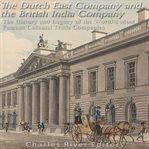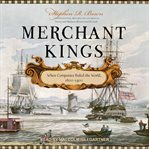Review by Choice Review
For those interested in a plainly written chronological study of English exploration and settlement efforts during the 16th and early 17th centuries, this book should serve those needs nicely. That is especially true for those interested in the financial aspects. For those looking for firsthand archival or archaeological studies, it is best to look elsewhere. While it would be an exaggeration to call this book a "page turner," its focus on individuals works quite nicely to keep the reader's interest. Occasionally, people and topics do seem to vanish from the narrative. Sir Walter Raleigh vanishes into the Tower of London as a prisoner, and efforts at English settlement in Ireland do the same after the 1570s. Nonetheless, this book should work nicely with advanced undergraduates and anyone interested in the English settlement of North America. Summing Up: Recommended. General collections, and upper-division undergraduates --Roy E. Schreiber, emeritus, Indiana University South Bend
Copyright American Library Association, used with permission.
Review by Booklist Review
Many are familiar with the story of how the Pilgrims founded the first British colony in North America, seeking religious freedom. Butman and Targett, through extensive archival work and new analysis and interpretation, present a very different perspective on the creation of the successful New World colonies in this extraordinary account, which begins some seven decades earlier, blends economic and world history, and emphasizes the profit motive as the primary motivating force. The authors trace a pathway through a difficult, turbulent, and painful time to reveal how exactly England came to the decision to launch these far-flung communities, and how, through trial and error, the British became a dominating presence in the colonization of North America. With in-depth genealogical information about those who were truly the groundbreakers and creators of the first American colonies, Butman and Targett tell the remarkable stories of Sebastian Cabot, Martin Frobisher, Humphrey Gilbert, Sir Walter Raleigh, Sir Francis Drake, and many more. An eye-opening and thoroughly enjoyable look at the roots of American ambition.--Johnson, Jennifer Copyright 2018 Booklist
From Booklist, Copyright (c) American Library Association. Used with permission.
Review by Publisher's Weekly Review
On May 20, 1553, three ships chartered by an English joint-stock company called the Mysterie set off down the Thames from London in search of "Regions, Dominions, Islands, and Places Unknown." The Mysterie ships sought a northern passage to the riches of Cathay, or China. They never found it-but, as business writer Butman (Breaking Out) and journalist Targett explain, their voyage inaugurated a new age of English seafaring propelled by the twin currents of trading profit and entrepreneurial zeal. The authors portray these 16th-century English merchant adventurers as the real founders of the New World, enterprising men whose appetite for risk made them a natural fit for their tempestuous times and whose critical role in the American story was erased in favor of the pious pilgrims. Butman and Targett are fluent storytellers with an eye for detail, but their rewriting of the age of exploration as a straightforward paean to modern-day capitalism is problematic; the story they tell isolates the motives of a handful of men from the wider context of the early Atlantic economy. Agent: Katherine Flynn, Kneerim & Williams. (Mar.) © Copyright PWxyz, LLC. All rights reserved.
(c) Copyright PWxyz, LLC. All rights reserved
Review by Library Journal Review
During the mid-15th-century, England was in economic, political, and social crisis. By 1552, English courtiers, merchants, adventurers, and financiers began planning innovative, costly, and perilous expeditions to expand trade to Asia and America in order to rival Spain, make England commercially self-sufficient, and save it from social decay. They sought new trading outposts; sources of spices, goods, and precious metals through new routes. Soon, they marketed the idea to establish a North American colony for commercial purposes, and as a safety valve, providing space and employment for criminals and the impoverished. Some ventures were moderately successful; others, tragic failures, but each was a learning experience for adventurers in pursuit of immediate wealth, who learned to consider the enduring hardships involved in establishing a new outpost or a sustainable colony. Butman (Breaking Out) and journalist Targett draw from a wealth of archival resources to argue convincingly that the commercial motive was key to English expansion into the New World. They successfully quash the 19th-century myth, manufactured by antislavery New Englanders, that virtuous, religious-freedom-seeking Puritans, not Southern slave-holding Virginians, were the real founders of the American Dream. VERDICT This engrossing history of adventure and innovation, disclosing the true motive for America's founding, will appeal to all readers.-Margaret Kappanadze, Elmira Coll. Lib., NY © Copyright 2018. Library Journals LLC, a wholly owned subsidiary of Media Source, Inc. No redistribution permitted.
(c) Copyright Library Journals LLC, a wholly owned subsidiary of Media Source, Inc. No redistribution permitted.
Review by Kirkus Book Review
A search for profits and new markets spurred England's exploration of North America.Business journalists and historians Butman (Breaking Out: How to Build Influence in a World of Competing Ideas, 2013, etc.) and Targett argue persuasively that the myth of America's founding narrative, centered on the Pilgrims' quest for religious freedom, ignores the reality of England's relationship to the New World in the 16th century. For the English, settlements offered both a market for manufactured goodsespecially woolen cloth, on which the economy was largely basedand a source of coveted raw materials, notably fur, wood, and precious metals. America's origin was not "a fable of moral rectitude and national goodness" but rather the culmination of decades of business deals. Jobs, the authors reveal, were the Pilgrims' "key concern." Drawing on considerable primary sources, the authors chronicle the investment groupsbeginning with the Company of Merchant Adventurers, in 1552who gathered shareholders to fund expeditions to foster trade. The Merchant Adventurers at first focused on trade with Russia and finding a northern route to China. That focus shifted after explorers Martin Frobisher and Francis Drake returned to England in the late 1570s with reports of vast western lands and a possible route to China through the Northwest Passage. In a nation mired in debt and economic problems, the lure of land grants appealed to investors large and small: merchants, artisans, shopkeepers, and soldiers. Nevertheless, with most investors contributing from 5 to 50 pounds, it proved difficult to fund a fleet of several ships and hundreds of men. Storms, disease, navigation errors, and rivalries undermined many voyages. Still, reports of successes "gave England a new way to think about itselfno longer as a sluggish and neglectful nation but as a bold seafaring people." The authors give ample evidence that "the driving commercial impulse, the spirit of enterprise" underlay the creation of America. As John Smith wrote in 1616, no "other motive than wealth will ever erect there a Commonweale."A lively and illuminating revisionist history. Copyright Kirkus Reviews, used with permission.
Copyright (c) Kirkus Reviews, used with permission.


